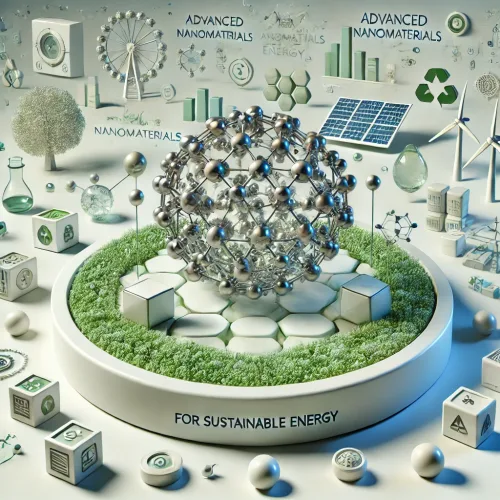
Advanced Nanomaterials for Sustainable Energy
Powering the Future: Sustainable Solutions Through Advanced Nanomaterials
Skills you will gain:
This program delves into the scientific, technological, and practical aspects of using nanomaterials in sustainable energy applications. Participants will engage with a range of topics from the synthesis and characterization of nanomaterials to their implementation in energy storage, conversion systems, and efficiency enhancements. The program combines theoretical knowledge with practical workshops, guest lectures from industry leaders, and hands-on projects.
Aim: The aim of the “Advanced Nanomaterials for Sustainable Energy” program is to foster a deep understanding of how nanotechnology can be applied to enhance energy sustainability. It seeks to empower participants with the capabilities to pioneer advancements in energy technologies and solutions that are environmentally friendly and economically viable.
Program Objectives:
- To introduce the latest advancements in nanomaterials and their applications in sustainable energy.
- To provide a solid theoretical foundation as well as practical skills in handling and manipulating nanomaterials.
- To stimulate innovative thinking and solution-oriented approaches to real-world energy challenges.
- To encourage the ethical consideration of nanotechnology’s environmental and societal impacts.
What you will learn?
Month 1: Foundations and Concepts
Week 1: Introduction to Nanomaterials
- History and Evolution of Nanomaterials
- Basics of Nanoscience and Nanotechnology
- Overview of Sustainable Energy Needs and Challenges
Week 2: Nanomaterials in Energy Applications
- Types of Nanomaterials Used in Energy Applications (e.g., carbon nanotubes, graphene, quantum dots)
- Properties and Functionalities of Nanomaterials
- Case Study: Realworld Applications
Week 3: Energy Conversion Technologies
- Photovoltaic Cells and Nanomaterials
- Nanoenhanced Fuel Cells
- Designing Nanomaterialbased Solar Cells
Week 4: Energy Storage Solutions
- Batteries and Supercapacitors Featuring Nanomaterials
- Nanotechnology in Hydrogen Storage and Conversion
- Innovative Energy Storage Designs
Month 2: Advanced Techniques and Integration
Week 1: Synthesis and Characterization of Nanomaterials
- Synthesis Methods for Nanomaterials
- Characterization Techniques (SEM, TEM, XRD, etc.)
- Synthesizing a Nanomaterial
Week 2: Enhancing Energy Efficiency with Nanomaterials
- Thermal Management through Nanotechnology
- Nanoinsulation Materials and Techniques
- Applying Nanomaterials for Improved Insulation
Week 3: System Integration and Performance Evaluation
- Integrating Nanomaterials into Existing Energy Systems
- Performance Metrics and Evaluation Standards
- Seminar: Industry Experts on Nanomaterials in Largescale Applications
Week 4: Regulatory and Environmental Considerations
- Health, Safety, and Environmental Impacts of Nanomaterials
- Compliance with Environmental Regulations
- Ethical Implications of Nanotechnology in Energy
Month 3: Innovation, Research, and Emerging Trends
Week 1: Emerging Nanomaterials for Future Energy
- Next-Generation Nanomaterials
- Smart Nanomaterials for Responsive Energy Systems
- Hybrid Nanomaterials
- Global Trends and Innovation Pipelines
Week 2: Computational Nanoscience & AI Integration
- Computational Modeling in Nanomaterials
- AI and Machine Learning in Nanomaterial Design
- Digital Twins for Energy Materials
- Case Study
Week 3: Entrepreneurship & Innovation in Nano-Energy
- Commercializing Nanotechnology
- Intellectual Property & Patents
- Tech Transfer and Industry Collaboration Models
- Business Model Canvas for a Nano-Energy Startup
Week 4: Research Paper Presentation & Peer Review
- Paper Finalization
- Completion of a short-format review paper (1000–2000 words) based on literature review or concept proposal
Intended For :
- Researchers and professionals in the fields of materials science, chemical engineering, mechanical engineering, and environmental science.
- Postgraduate students who are specializing in nanotechnology, energy systems, or related disciplines.
- Industry professionals seeking to implement sustainable practices and technologies in their operations.
Career Supporting Skills
